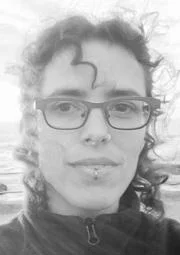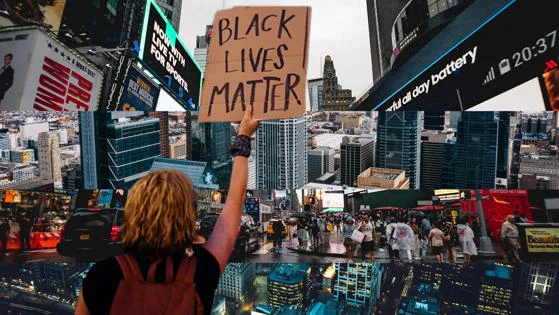Revolutionary papers: an exploration of anticolonial and anti-imperial journals

Contents
How have periodicals in the form of newspapers, magazines, journals, and newsletters played a key role in establishing new social and cultural movements and institutions?
Revolutionary Papers, a new research and teaching initiative on anticolonial and anti-imperial periodicals from the Global South, explores this question and looks at how these publications circulated new political ideas and built networks, often under conditions of intense repression.
The project was set up by Dr Mahvish Ahmad from LSE’s Department of Sociology, Dr Hana Morgenstern from Cambridge University’s Faculty of English and Dr Koni Benson from the Department of History at the University of the Western Cape. It pulls together researchers from a myriad of disciplines worldwide creating a global network of projects exploring different journals.
Context is key
You can’t understand the content of the journal if you can’t understand that context.
What started as a small idea between the group to host a workshop on radical anticolonial journals very quickly spiralled into a much bigger project. "We put a call out for papers and were expecting maybe 15 applications. Instead, we got over 80. Then, COVID-19 hit and we’ve had two years working together online, running study circles and creating a website with the idea of developing digital teaching tools on how to work with movement materials in the classroom," explains Dr Benson.
Creating a space where researchers working on anticolonial journals can come together to collaborate and share their work is very important to the team. However, they are keen to stress the importance of not just unearthing and sharing periodicals in the project but also understanding the context in which they were produced.
"Anticolonial pamphlets and magazines are usually published in very urgent political conditions. Often, they are reacting to something that’s happening, current events and figures. You can’t understand the content of the journal if you can’t understand that context," explains Dr Ahmad.
For example, she is currently researching Jabal, a banned underground pamphlet from the 1970s in Pakistan. This has involved in-depth conversations with the people who were involved in its production and careful checking that it is safe for her to share.
Dr Benson agrees and highlights the project’s ethical considerations. "There’s a long history of colonial extraction of archives. If you want to challenge those archives, you don’t just want new content, you need new forms and new ethics and so a lot of this is around building relationships with people who were at the forefront of these movements where people’s lives were on the line and there were high stakes," she says.
Lost histories
... it’s exciting to see there are people in so many different countries across the world digging up archives about, sometimes really major, social movements that we know nothing about because our history is so Euro-centric and narrow.
For the project, Dr Benson is researching The Namibian Review: A Journal of Contemporary South West African Affairs. She explains that it took her a year to confirm just how many editions were put out. It is common that journals produced in the midst of militant movements remain scattered and difficult to find.
And the project is full of other similarly long-lost revolutionary papers used by groups from the Black Panthers to collectives working in opposition to Pinochet’s regime in Chile in the 1970s and 1980s.
Many of the people working on social movements were killed or imprisoned, their stories lost with them. Where the movement’s papers have survived, there has often been a lack of infrastructure and resources to keep them in good condition so unearthing them can be an incredibly difficult task.
"As someone who studies anticolonial movements and cultures, it’s exciting to see there are people in so many different countries across the world digging up archives about, sometimes really major, social movements that we know nothing about because our history is so Euro-centric and narrow. It excites me that those projects will exist and will, on some level, be publicly available for people to read about," enthuses Dr Morgenstern, whose work focuses on two Palestinian anticolonial journals.
A shift in perspective
We are living in a moment where we’re not given a sense there is an alternative to neo-liberal capitalism, and these journals were written where there was a sense of an alternative.
Through the project, the team hope to create a space which brings people together to build on anticolonial thinking.
"I’d like this project to help shift the way that disciplines in the humanities and social sciences look at anticolonialism and incorporate, understand and teach postcolonialism and postcolonial histories and cultures. One of my big goals is for it to reach students deep inside their education," says Dr Morgenstern.
Dr Ahmad agrees and adds: "The thing that has always irked me is that studying empire, colonialism and racism is still treated as a niche subject or a theoretical area when these are key questions in most of the world. Most of the world was colonised and subjected to racial subjugation and imperial intervention. For that reason, the debates around these themes are incredibly rich. What does it mean when you say empire? What is it when you talk about it in Ethiopia versus when you talk about it in Mexico or Korea?"
The team underline the ongoing significance of the project and highlight how it raises important questions for today about borders and citizenship, inclusion, exclusion, and migration.
"We are living in a moment where we’re not given a sense there is an alternative to neo-liberal capitalism, and these journals were written where there was a sense of an alternative and they raised questions around what socialism means. This is something we can only collectively figure out. I can’t just figure it out from reading The Namibian Review, so I really appreciate the space to learn across global and thematic areas," says Dr Benson.
Going forwards, the team hope to expand the project, building on the work of their ancestors to open up the imaginations of what can be possible and highlight the alternatives available.
Dr Mahvish Ahmad, Dr Hana Morgenstern and Dr Koni Benson were speaking to Charlotte Kelloway, Media Relations Manager at LSE
Download a PDF version of this article






